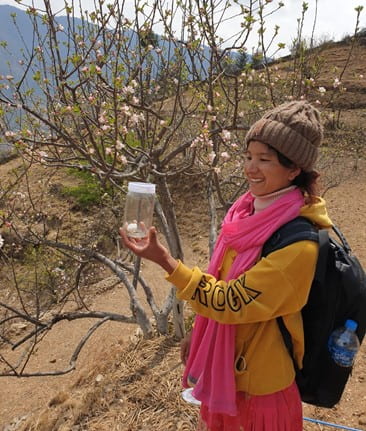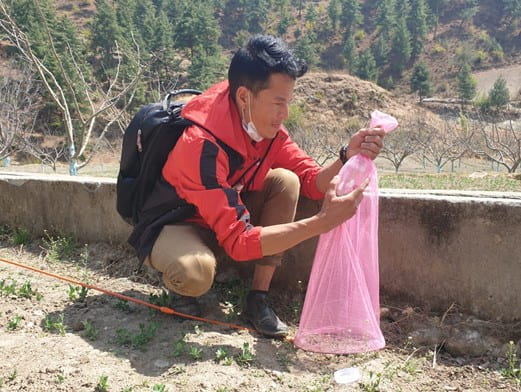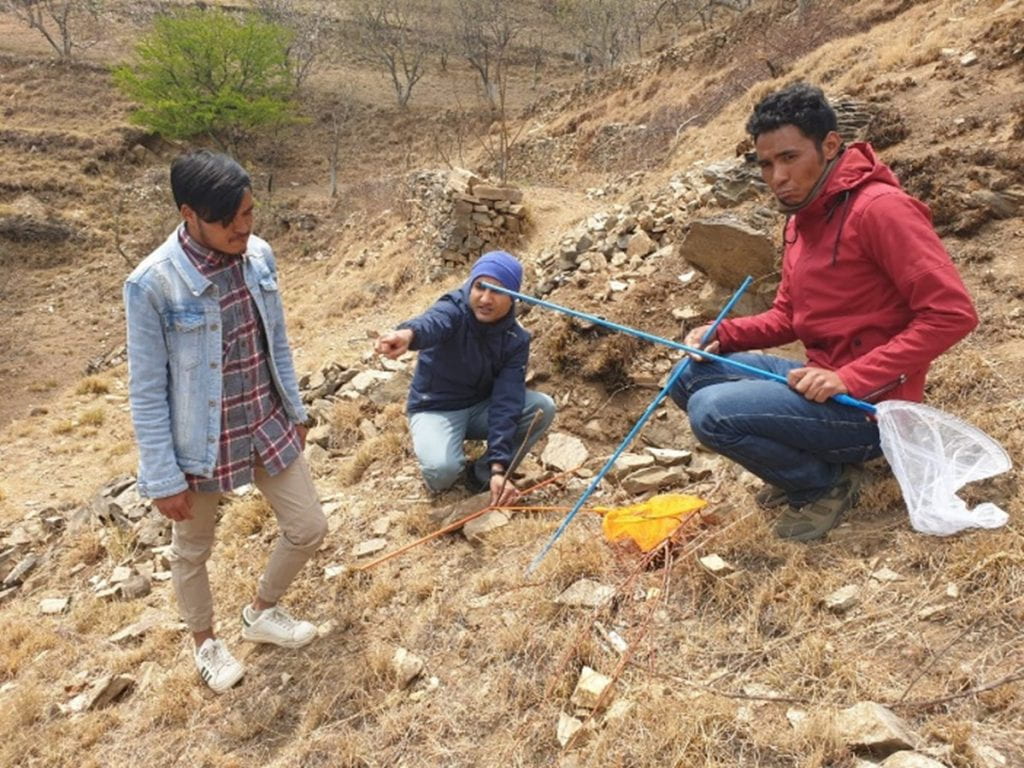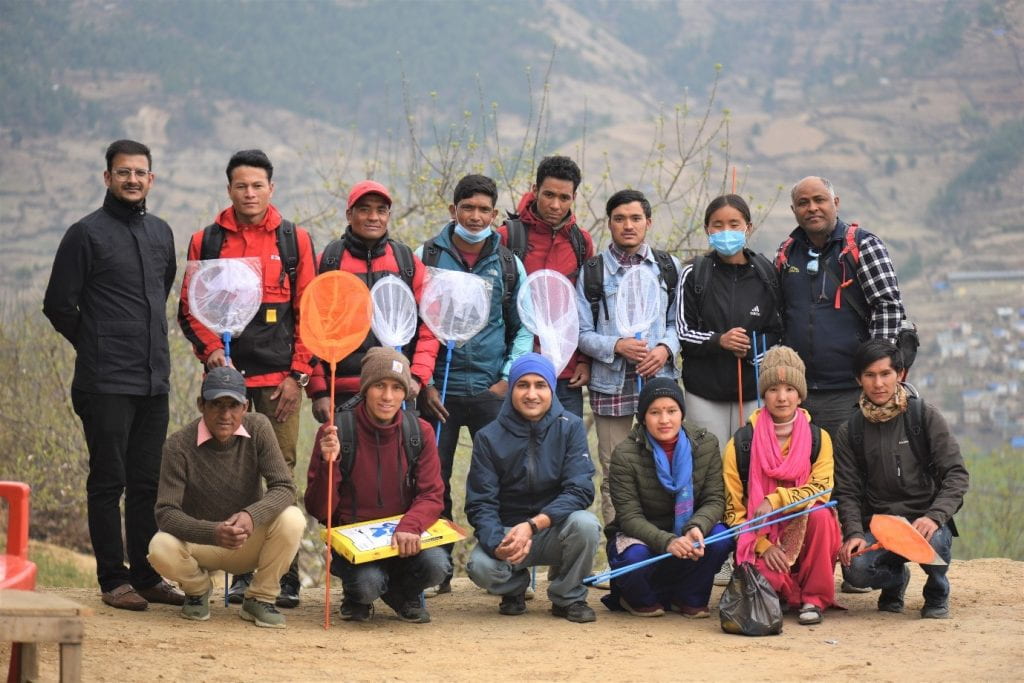When the arrival of Covid-19 took overseas fieldwork firmly off the menu, things looked rather bleak for the Micro-Poll project. Our aim was to understand the links between pollinators, climate change and human nutrition in rural Nepal, but with an interdisciplinary team of nutritionists, pollination ecologists and climate change modellers scattered across six different countries and a whole lot of complex fieldwork to be run in Nepal, this looked like a challenge too far. In mid-April however, in the remote hills of western Nepal, a remarkable thing occurred. In the midst of a global pandemic, ten enthusiastic young field assistants from ten local villages were trained in the science of pollination ecology and began a year of data collection – all without a single overseas project partner setting foot in the country.
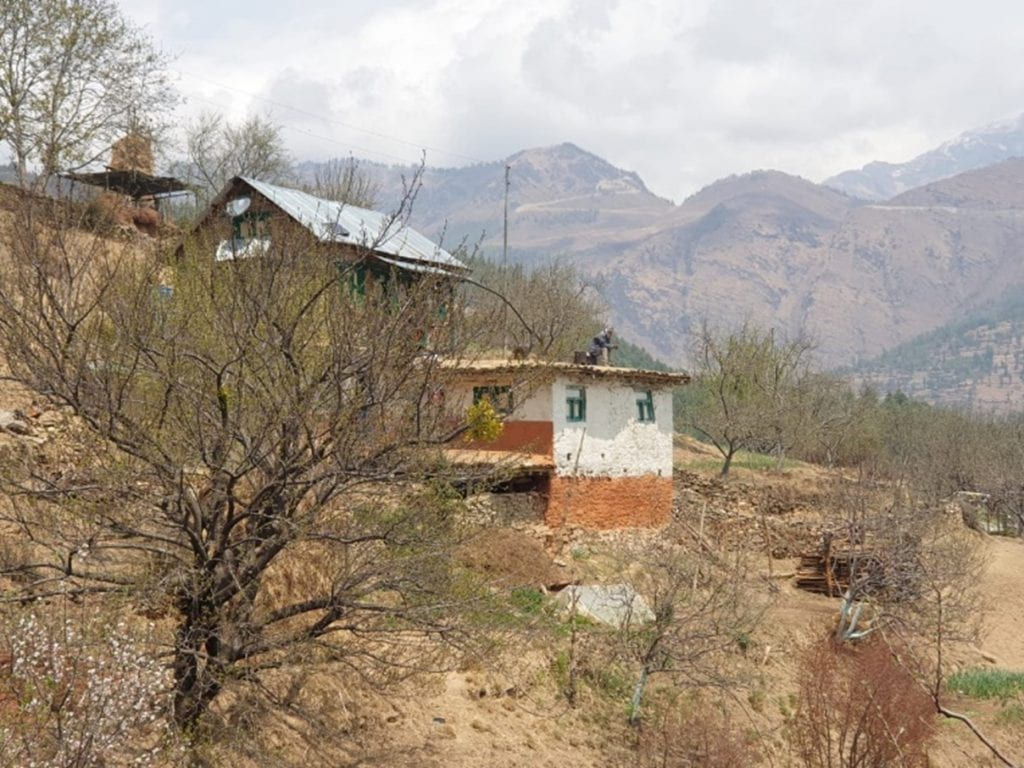
Where international travel has failed, technology and teamwork have excelled. A data collection app has been developed and translated into Nepali, guiding field assistants through the survey process and helping to identify plants and pollinators. Homemade training videos have been produced in the gardens of New Zealand and projected onto the walls of Nepali villages. Countless Zoom calls have taken place, with nets being waved in front of the camera and the basics of pollination ecology explained to our endlessly adaptable project manager in Nepal. In one particularly memorable moment (halfway through dinner), I was video called from the rocky hills of our field site, with the snowy Himalayas in the background, to watch the field assistants putting their newly-learnt skills into action.
As I sit at my desk, watching the data appear online, freshly uploaded from a transient patch of internet at the top of some remote hill in Nepal, I can’t help but wish this wasn’t all necessary – that I could be out there with them. But perhaps we should start to embrace this remote fieldwork as the new normal, as it does have some major advantages. So far, in the year or so of this project’s life, we have saved around 50 tons of carbon, just from staying put in our own countries. This has also had another important effect – in the absence of overseas staff, the team in Nepal have had to take full ownership of this project, learning, managing and implementing everything for themselves. This embeds the work in Nepal in a much more permanent way, ensuring the skills, capacity and knowledge it has built live on long after the end of the project.
Background to the Micro-Poll Project: Micro-Poll is a 3-year transdisciplinary project led by Professor Jane Memmott, with partners from the University of Harvard, the University of Helsinki and UCL. The project is funded by the Belmont Forum (a consortium of international funders including NERC, NSF and the Finnish Academy) and the Bristol Centre for Agricultural Innovation. Nepal is on the front line of climate change, placing both its people and its pollinators at risk. Pollinator declines are predicted to impact human health as key micronutrients in insect pollinated crops such as vitamin A and folate are lost from the diet. With no viable alternatives to home-grown foods and limited access to vitamin supplements, rural Nepali communities cannot afford to lose their pollinators. Our project aims to predict the impacts of climate change on pollinator communities and the resulting effects on human nutrition. We will use this information to devise mitigation strategies for safeguarding both pollinators and human health in Nepal.
Written by: Tom Timberlake, lead post-doc on the Micro-Poll project
